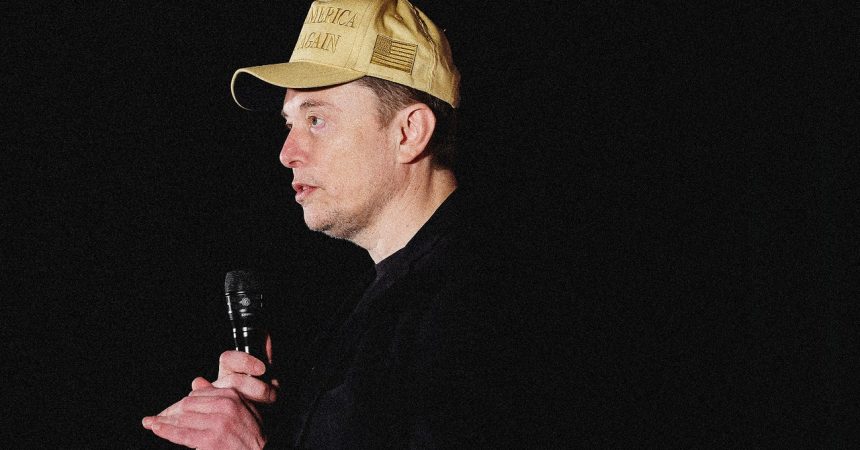Elon Musk’s recent foray into British politics, sparked by a report about child sexual exploitation in Oldham, has ignited a firestorm of controversy. The report claimed that Jess Phillips, the safeguarding minister, had rejected a request for a government-led inquiry into the issue. Musk and his supporters interpreted this as part of a larger government cover-up, despite Phillips’ clarification that the decision to commission an inquiry rested solely with the Oldham Council. This stance, consistent with the previous Conservative government’s response, was twisted by Musk into accusations against Phillips, including calls for her imprisonment and labeling her a “rape genocide apologist.” This dramatic escalation, fueled by misinformation and lacking any evidence, underscores the dangers of unchecked influence on social media platforms.
The narrative spun by Musk rapidly escalated to encompass broader accusations against Keir Starmer, the leader of the Labour Party. Musk, relying on distorted interpretations of past events, accused Starmer of complicity in “the RAPE OF BRITAIN” during his tenure as Director of Public Prosecutions. Musk’s claims, devoid of factual basis, contrasted sharply with Starmer’s actual record, which included the prosecution of a grooming gang in Rochdale and the implementation of measures to facilitate the prosecution of sexual abuse cases. This blatant misrepresentation of Starmer’s actions reveals a concerning disregard for accuracy and a willingness to manipulate information for political point-scoring.
This incident highlights a dangerous trend of misinformation amplified by social media’s echo chambers. Musk’s pronouncements, despite their inaccuracy, gained traction among his followers and were further propagated by a network of right-wing figures, both in the US and the UK. This amplification, devoid of journalistic fact-checking or critical analysis, allowed a distorted narrative to rapidly spread, potentially influencing public perception and undermining trust in established institutions. The incident serves as a stark reminder of the power of social media to disseminate misinformation and the urgent need for robust mechanisms to combat it.
Musk’s claims attracted the attention and support of a network of right-wing figures, primarily based in the US. These included Chaya Raichik, the operator of the controversial LibsofTikTok account known for its anti-LGBTQ+ stance, anti-transgender activist Riley Gaines, right-wing commentator Ian Miles Cheong, and disgraced former national security advisor Michael Flynn. The involvement of these figures, often associated with inflammatory rhetoric and divisive political agendas, further fueled the controversy and broadened its reach. This transatlantic alliance underscores the growing interconnectedness of right-wing movements and the potential for misinformation to spread rapidly across borders.
The incident also saw US Senator Mike Lee raise the provocative question of whether the UK “needs to be liberated,” to which Musk responded affirmatively. This exchange, with its echoes of colonial rhetoric and disregard for national sovereignty, further escalated the situation and drew criticism for its inappropriateness. Bill Ackman, a hedge fund manager and Trump supporter, amplified Musk’s narrative, even suggesting sanctions against the UK. These interventions demonstrate the potential for social media figures to exert undue influence on political discourse, blurring the lines between informed commentary and dangerous interference in the affairs of another country.
Musk’s actions culminated in a call for King Charles to dissolve the UK parliament and order a general election. This call, based on a misunderstanding of the UK’s constitutional monarchy, demonstrated a lack of understanding of British political processes. While the monarch formally dissolves parliament before a general election, this is done solely at the request of the prime minister. The monarch’s role in this process is largely ceremonial, highlighting Musk’s misinterpretation of the UK’s constitutional framework. This episode underscores the dangers of influential figures making pronouncements on complex political matters without a thorough understanding of the relevant context and legal frameworks.



